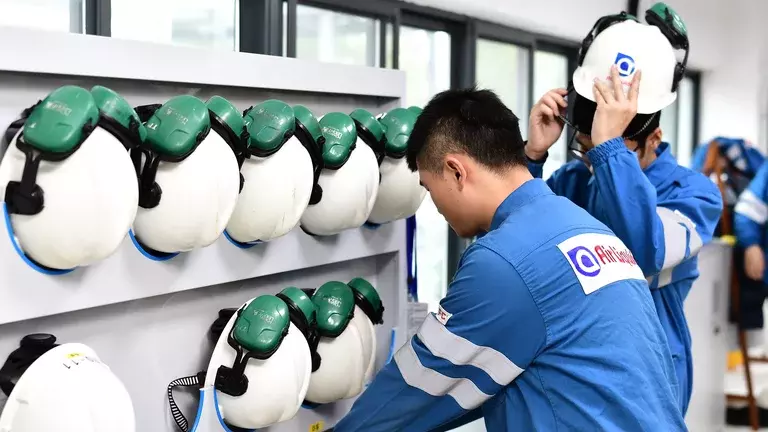Safety
A fundamental value
Safety is a fundamental value. It is an integral part of Air Liquide’s operational excellence and culture. Air Liquide is committed to efficiently and under all circumstances reducing the exposure of its employees, customers, subcontractors, suppliers and local communities to professional and industrial risks.
Safety actions: three axes
Occupational safety
Air Liquide has drawn up 12 “Life-Saving Rules” on which there is no compromise. Given their importance, non-compliance with one of these rules by anyone working for Air Liquide can lead to a warning, or even sanctions.
On site, safety meetings are organized on a regular basis between employees and their managers to discuss the various safety issues at the heart of their daily work. In addition, it is recommended that each entity organizes a monthly safety meeting.
Every month, Air Liquide publishes an internal HSE (Health, Safety, Environment) newsletter to present a safety topic to maintain vigilance, share good practices and initiatives from certain entities, and feedback on safety events to share lessons learned and prevent their recurrence. Elements of this newsletter are then taken up locally and discussed between employees and their managers.
Road safety
Air Liquide is working on the rapid deployment of new onboard technologies in trucks and vehicles of the fleet. For instance, cameras can help to detect drivers’ fatigue and distraction, help change driving habits when necessary, and provide visibility of the vehicle’s surroundings.
Special events are regularly organized to recognize road safety performance and promote the sharing of good practices among subsidiaries.
Process safety
Since its launch 15 years ago, the IMS has significantly changed and improved the way in which industrial activities are managed. Thanks to employees’ commitment to safety, respect for the environment and reliability, this system helps the Group strive towards operational excellence. Its implementation is regularly assessed by specific IMS internal audits.
The technical standards are regularly reviewed and updated to clarify aspects and to take into account new data.
Rapidly after a major event at a site, feedback is organized to share lessons learned and prevent this from happening elsewhere in the Group. Reference IMS documents are then reviewed as necessary in the light of lessons learned.



